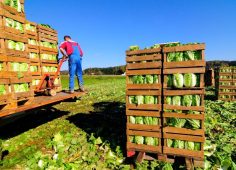Training, and Doing It Well, Is Key to Food Safety Success
By Samuel Rognon
Generational changes are presenting new challenges for food safety trainers and food plant supervisors. Audiences are not responding to verbal communication or instructions as in the past. As a result, it is increasingly difficult to get younger generations to actively participate in food safety training that haven’t been updated to meet their communication needs.
Several factors contribute to this trend:
- Outdated training methods. Many food safety trainers have not challenged their food safety training techniques and are still using endless monologues, overburdened PowerPoint presentations, too much theory and few concrete tools, and lack of specific applicable examples.
- Change in participant profile. Young workers and professionals have different values, expectations, and learning styles than older generations. They are expert consumers of information and are able to filter and process data quickly. If you do not clearly relate the topic to their duties, you will quickly lose their attention.
- Demand for in-plant courses to the detriment of public seminars. Participants are no longer satisfied with general information. They need specific and practical tools that are directly applicable to their workplaces and companies, which is why they prefer in-plant workshops to classroom lectures.
How do we deal with this new reality?

-
 Food SafetyFood TechnologyPodcastPreventative Controls and RiskSoftwareSupply Chain ManagementTechnology
Building a Culture Around Food Safety Data: Key Takeaways from Cronan McNamara
Food SafetyFood TechnologyPodcastPreventative Controls and RiskSoftwareSupply Chain ManagementTechnology
Building a Culture Around Food Safety Data: Key Takeaways from Cronan McNamara
-
 FeaturedFood SafetyFood TechnologySupply ChainSupply Chain ManagementTechnology
How Technology Has Improved Food Traceability Across Globalized Supply Chains
FeaturedFood SafetyFood TechnologySupply ChainSupply Chain ManagementTechnology
How Technology Has Improved Food Traceability Across Globalized Supply Chains
-
 ConsultingFeaturedFood SafetyFood Safety Culture & TrainingFood TechnologySoftwareTechnology
Embracing the Digitalization of Food Safety, Without Fear
ConsultingFeaturedFood SafetyFood Safety Culture & TrainingFood TechnologySoftwareTechnology
Embracing the Digitalization of Food Safety, Without Fear
-
 ConsultingFeaturedFood RecallsFood SafetyPublic Health
Early Crisis Communication Safeguards Companies During Food Industry Recalls
ConsultingFeaturedFood RecallsFood SafetyPublic Health
Early Crisis Communication Safeguards Companies During Food Industry Recalls
-
 ConsultingFeaturedFood RecallsFood SafetyFood Safety Culture & TrainingTraining and Education
Innovative Approaches to Food Safety Training for Modern Manufacturing
ConsultingFeaturedFood RecallsFood SafetyFood Safety Culture & TrainingTraining and Education
Innovative Approaches to Food Safety Training for Modern Manufacturing
-
 Audit and CertificationsFeaturedFood RecallsFood SafetyFood Safety ComplianceSupply ChainSupply Chain Management
Ready for FSMA Rule 204? Increased Traceability Requirements for High-Risk Foods
Audit and CertificationsFeaturedFood RecallsFood SafetyFood Safety ComplianceSupply ChainSupply Chain Management
Ready for FSMA Rule 204? Increased Traceability Requirements for High-Risk Foods


